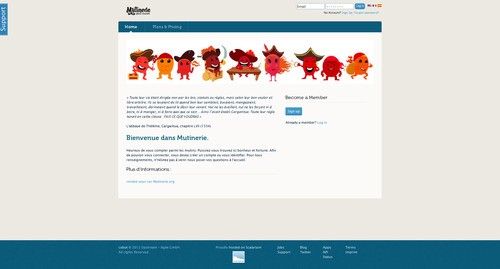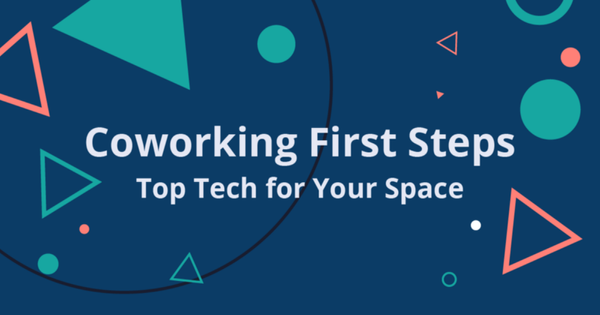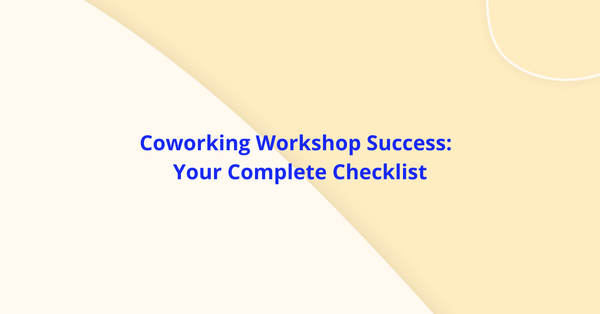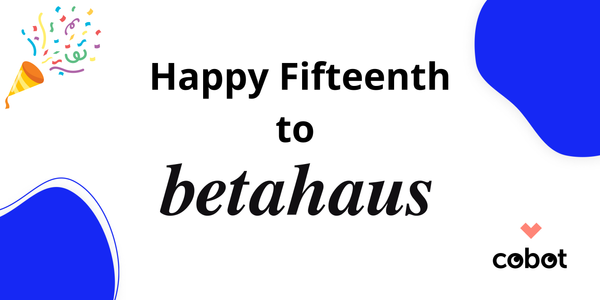Location: Paris, France |
Size: 400 sqm |
Desk Seats: 70 |
Event Capacity: Up to 120 guests
What is your vision of coworking?
We believe in a very simple model. Our motto is “Libres Ensemble” (“free together”). We think that independent workers can be divided into three main subcategories: The Creators (designers, developers…), the Communicators (bloggers, journalists…) and the Managers(entrepreneurs, consultants…). They can work alone, but these three types need each other.
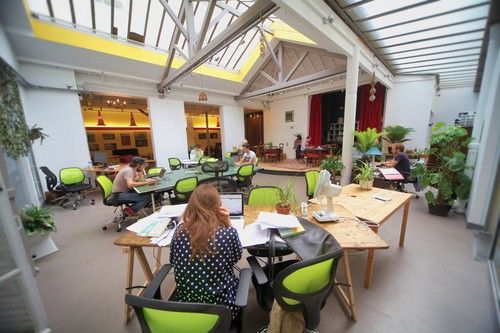
For us, coworking is the way to bring them together and make something good take place. This is why we wanted to keep the space open to anyone.
How did you come across the idea of opening a coworking space? What issues did you have at the beginning and how did you solve them?
We thought of coworking independently of each other. One day we realized we all had the same problem and were thinking of a similar solution. We had entrepreneurial ideas, but couldn’t find a space that would fit our expectations. We carried on with other projects, and I moved to Berlin to do an internship.
During this time we also met the people from Betahaus, Utopic_us, Cowo360, and IndyHall, and they were a great inspiration for us. Two years ago, we decided we wanted to start our own space.
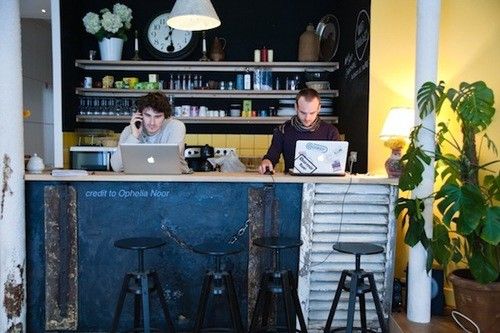
Being a freelancer in France is not so recognized as in the United States or Germany. Many people in France still thinks in terms of corporations, and even if it is not said out loud, people still think like this and their behaviour is affected by this belief. The mentality may not be the best for being a freelancer, but the situation is evolving in the right direction. Due to the financial crisis people are being pushed to find their own solutions, and this is a good moment to form a community. So we started creating one.
We worked on the concept, met other people. After three months we visited a space and the owner told us we could have it. They told us we could move in almost immediately, and the first month was for free! There was obviously something wrong with the place. We started working there until one day the police came and started changing the locks.
In two days we were back to where we started. This is how we built the core of Mutinerie: we did not have a space but the people were still with us, and many of them still are. We knew we were able to gather people together so we started looking for a better place. It took some time but we already had the community and a well-known blog. We started building the community without the space. We would organize events, do coworking in our flats, update the blog… In this phase of the project we spoke with more than 300 people, and they told others about our space.
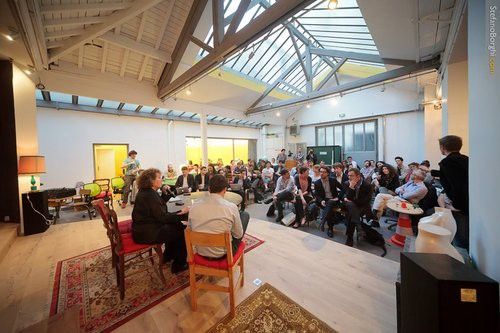
So what does a day in your life typically look like? How do you run your space?
We are all working on this project full-time. We have a lot of events, around four per week, so we have to organize, move the furniture in the space, host the attendees, etc. We also take care of the financial aspects, communication, maintenance of the space, and plan improvements.
Cobot helps with this. We wanted to give a lot of flexibility to our coworkers, and it is hard and time consuming to do everything manually, that is, check members in, send invoices, etc. We could have chosen a simpler system, but cobot is flexible, the invoicing is pleasant, and the other options in the market were not so good at that time. Of course, cobot is not perfect and there are a lot of things that can be improved; being partially open-source could be a solution for this. We started to work with the API and are trying to build some additional apps, but unfortunately we are not developers.
What advice would you give to someone considering running a coworking space, and what are your wishes for the future of coworking?
There is a lot of advice in the web, which is cool, but you also have to find your own way. We at Mutinerie have a strong identity, and I like this very much. We have the pirates, the atmosphere, most of our furniture is recycled… We tried to do it our way, still listening to advice, for sure, but we wanted to have our own spirit. This is something we admire in spaces like Betahaus or Utopic_US, that they have an identity. We all want to work together, but we are all different and we should build different spaces.
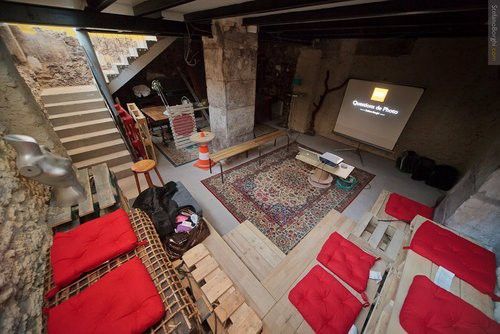
We have no doubt that coworking is going to expand a lot more, and we think it is going to be more structured. A problem I see is that many spaces are run by people who don’t make a profit, and this may affect their motivation. We have to avoid burning out; we need to find the right balance, be fair, and offer great service, but at the same time we should be more structured and make sure that our spaces are financially sustainable. I hope the big players are going to keep the spirit and values and expand the concept in the right way. If it gets bigger, we may lose some things on the way, but we need to make sure we keep the original spirit. Coworking is here to stay. We are not amateurs anymore.
This is Mutinerie’s cobot space. Do you want one? Sign up for a free trial today!
